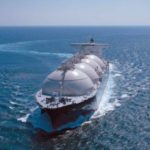Energy crunch shows need for more oil, gas investment: IEF secretary general

The oil and gas industry is emerging from the depths of the coronavirus pandemic into the teeth of an energy crisis.
Two straight years of massive capex cuts are leading to a supply shortage that could destabilize the global economy, Joe McMonigle, the secretary general of the International Energy Forum, told S&P Global Platts.
That is why it is imperative that investment be encouraged across the industry, even as momentum gathers behind the push for clean energy and a shift from fossil fuels, he said.
“We can’t let the climate crisis turn into an energy crisis,” he said. “We need to still be able to pursue progress on climate while at the same time powering the global economy, and that means continued investment in oil and gas.”
In a study conducted with Boston Consulting Group, the IEF calculated that oil and gas companies slashed their capex budgets by more than one-third in 2020, with another 25% contraction estimated for 2021.
That has contributed to a surge in energy prices, with the Platts JKM LNG benchmark more than doubling so far this year and Dated Brent up 71%.
Platts interviewed McMonigle at the Riyadh headquarters of the IEF, an organization founded to foster dialogue between energy producers and consumers, where he discussed OPEC’s reluctance to heed calls for more supply, the Middle East’s net zero targets and the lessons learned from the current crisis.
Below is a transcript, lightly edited for length and clarity.
PLATTS: Many consuming countries, such as the US, India and Japan, are complaining about high oil prices and asking OPEC to pump more crude. Will it, and does it need to?
MCMONIGLE: What they try to do is follow the supply and demand fundamentals, and they’re not really focusing on prices. I think that comes as a surprise to people. Obviously there’s great concern about prices, naturally as there is for politicians of any stripe. The recent price spike in oil is really being led by the gas crisis, mainly by gas-to-oil switching. I don’t think you’re going to see OPEC make any dramatic changes to the plan they put in place. They’re going to be very careful. One area that I know they’re looking at quite closely is the transportation sector, especially the aviation sector. It hasn’t really recovered. It’s about 25% below where it should have been. If it does come back quickly, and right now, it’s still very tepid, that will create issues, and that’s something to keep an eye on in terms of what OPEC might or might not do. But right now, they’re really seeing no changes in terms of the demand outlook.
Supplies in reserve
PLATTS: Is OPEC doing enough to ensure energy security?
MCMONIGLE: National oil companies took part in [capex] cuts in 2020, but this year they’ve for the most part turned the corner and are investing again. So when I talk about the capex cuts, I’m really talking about the non-OPEC and private sector. Companies cut capex about 35% in 2020. This year it’s going to be about 25%. Two years in a row of capex cuts are really going to lead to more volatility in the oil and gas sector and also higher prices. This is an area we’re quite concerned about. Governments and policymakers are certainly becoming more aware of this, with the gas prices. The winter, of course, is going to exacerbate the gas prices. But even when the winter ends, the lack of investment upstream in the oil and gas industry are still going to be with us.
PLATTS: Does the energy crisis highlight the need for more strategic reserves, in your view?
MCMONIGLE: I think the best thing we can do for energy security is making sure we have the adequate resources in terms of investment for upstream while also tackling the climate challenges. We have to do both. I’m particularly worried that volatility and higher prices will undermine support for climate action. Once you lose that, it’s really hard to get it back. Policymakers have to be very careful. The gas crisis is not a convenient time for the COP26 meetings and deliberations, but the market is sending a signal that we need to be much more comprehensive about the energy transition.
Pathways to zero
PLATTS: US President Joe Biden has been asking OPEC for more crude. Is that an effective strategy for a president so focused on climate change?
MCMOINGLE: He’s not the first administration to ask OPEC and Saudi Arabia to be doing more. When I was at the US Department of Energy, before every OPEC meeting, we would encourage supply, not so much a certain price or supply level, but to have supply meet demand. The administration is acting like any other administration in terms of keeping an eye on the economy and what higher energy prices will do for the economy, which in any country is going to be a hot topic. I’m not surprised that it’s happening, and the US is not the only country doing this.
PLATTS: Saudi Arabia has just announced a net zero target for 2060, following the UAE’s 2050 pledge. How credible are these goals from these Middle East oil producers?
MCMONIGLE: I think they’re very credible, and I don’t think the kingdom did this lightly. I think they would like to do it sooner, but they’re trying to be more realistic about the global economy and the energy transition and how quickly that can happen. What we also have to look at is, different countries are going to pursue different pathways to get to these targets. In Saudi Arabia’s case, they’re pushing this circular carbon economy, as opposed to the EU, which is promoting more renewables and hydrogen. Technologies that the Saudis are pursing are CCUS, recycling and direct air capture. I welcome it because really up to this point, especially on CCUS, for example, it’s been the US, Australia, the UK and Norway that have been big investors. But if you have somebody like Saudi Arabia and some of these other Gulf countries willing to back these technologies with serious dollars, which I believe they are very sincere about, that could be a big gamechanger. You can’t even meet these hydrogen goals, which is one of the alternative fuels that has the most momentum, unless you have economy-wide uptake of CCUS.
Interconnected markets
PLATTS: The IEA’s net zero pathway, saying no new upstream projects should be sanctioned if a 2050 target is to be achieved, has been very controversial. Has it helped or hurt the conversation about climate change and energy?
MCMONIGLE: As [IEA Executive Director Fatih Birol] has said, it basically provides one pathway to get to climate neutrality, but he readily acknowledges that different countries will pursue different strategies depending on their specific needs. What it’s done is that it has forced countries to take a very hard look at what choices they have and really pursue reasonable, rational approaches to meet their climate goals. That’s not going to be exactly what was laid out in the net zero report, but I think it starts the conversation. It’s a good measuring stick and baseline for other countries as they make decisions on their own pathway.
PLATTS: What lessons are there to be learned from this energy crisis?
MCMONIGLE: The big lesson is that the energy markets are sending us a signal. The energy markets are so interconnected, we can’t just look at one sector. It has to be a comprehensive approach. Markets are sending a signal about investment, especially gas. We need gas to be the bridge fuel. I know that’s controversial in some sectors. I hear from ministers, particularly from developing countries, that they need natural gas not just to meet energy transition goals but to meet energy security goals today. We definitely can do both. In fact, we need energy companies to really help scale up the transition. That’s why we need energy companies to be profitable. We need them to keep investing in energy today while at the same time investing profits in energy technologies of the future.
Source: Platts

 Hellenic Shipping News Worldwide Hellenic Shipping News Worldwide, Online Daily Newspaper on Hellenic and International Shipping
Hellenic Shipping News Worldwide Hellenic Shipping News Worldwide, Online Daily Newspaper on Hellenic and International Shipping





















 PG-Software
PG-Software